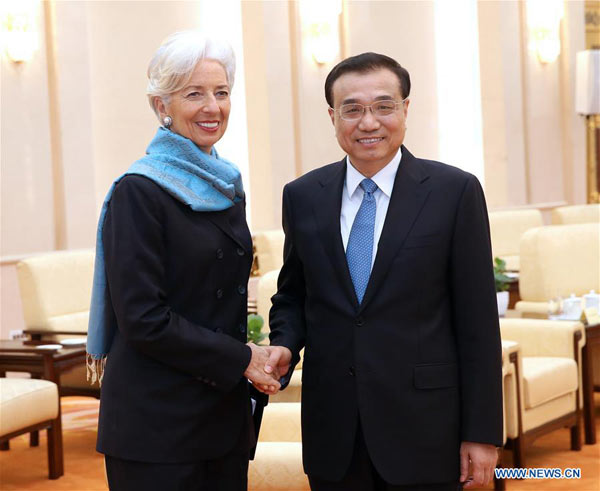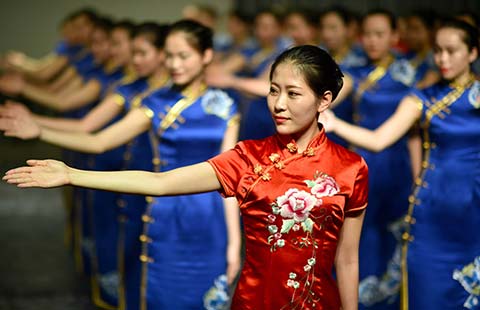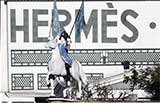Li rules out using 'currency war' to boost exports
By XIN ZHIMING in Beijing and CHEN WEIHUA in Washington (China Daily) Updated: 2016-03-22 01:48
China is opposed to any "currency war", which would be detrimental to the smooth recovery of the world economy, said Premier Li Keqiang while meeting with Christine Lagarde, managing director of the International Monetary Fund, in Beijing on Monday.
China will not use yuan depreciation to boost exports, since this would affect the country's efforts to upgrade its economic structure, he said.
The premier said China will push forward reform of the yuan's exchange rate mechanism and ensure the yuan's exchange rate floats within a reasonable band and is kept largely stable at an appropriate and balanced level, according to an official statement.
China's debt ratio - especially that of the central government - is quite low, while the country's savings rate is high, he said.
Moreover, Chinese banks' capital adequacy ratio, which measures their capability to tackle risk exposure, is kept at a high level, meaning that China is capable of preventing any regional or systemic financial risks from materializing, Li said.
He urged the major economies to improve macroeconomic policy coordination to anchor the global economic and financial system.
China is willing to promote dialogue with major international economic and financial institutions, including the IMF, to send messages that help boost market morale and promote economic and financial stability, Li said.
Lagarde, who was in Beijing to attend the China Development Forum, which concluded on Monday, said China's recent communication with the international community on such issues as the yuan's exchange rate is effective and helps improve market confidence.
In a statement on Monday, Lagarde said China is in the midst of a historic transition aimed at transforming and rebalancing its economy, while delivering economic and environmental sustainability.
- Report estimates 286m potential VR device users in China
- Traditional blacksmith with a Taobao shop
- Shanghai becomes 7th region to cut corporate burden
- Qihoo 360 launches new mobile phone, merges brands
- Making food security a top priority
- Asia embraces sharing economy
- Vision for tomorrow
- Working in insurance sector flexible and fun

















